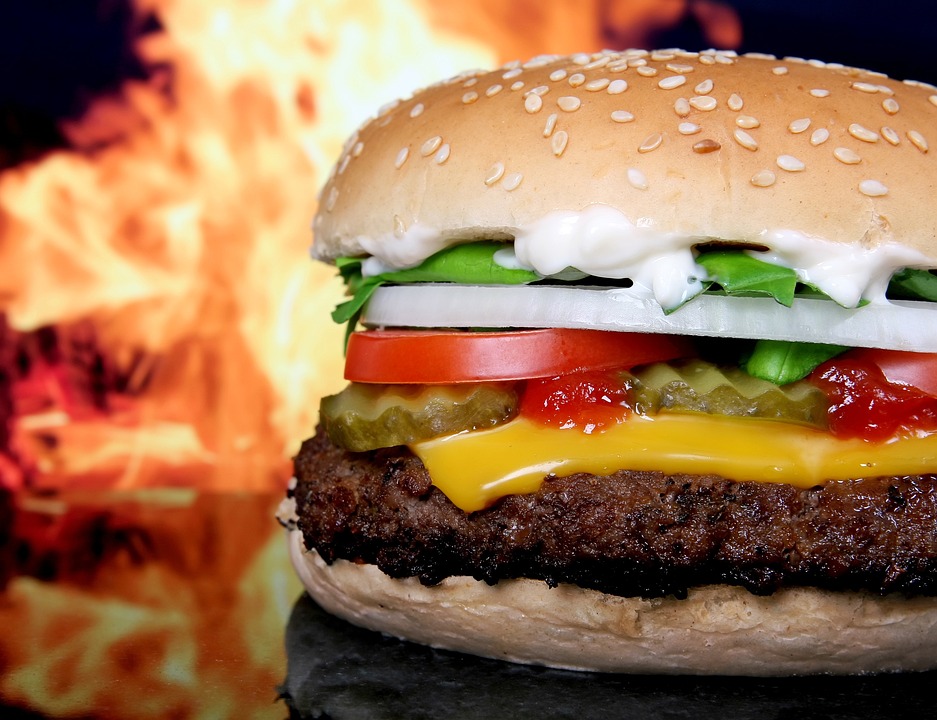A well-balanced diet is so important these days to help keep children and adults alike at their happy and healthy best. It should include foods from the new food pyramid that have all the essential nutrients your body needs.
This includes vitamins, minerals, carbohydrates, proteins, fibers and the right kind of fats. A variety of foods from all of the food groups should be consumed on a regular basis. You’ll miss out on many very important nutrients if you only eat food from one or two of the food groups.
– The days of the “meat and potato man” are long gone.
Oils
A well-balanced diet includes only healthy fats. Extra virgin olive oil and coconut oil contain fats that are good for you.
It is best not to use olive oil for cooking, (lower smoke point can be toxic) but to use it as a dressing instead. – Use all oils conservatively.
Fruits and Vegetables
A balanced diet should really stress the vegetables and fruits, which can protect you from many illnesses, such as certain kinds of cancers, eye problems like cataracts and macular degeneration, and digestive tract problems.
Steamed or raw vegetables give you the most nutrition, compared to boiled or stir-fry, and are higher in fiber.
– If you’re trying to lose a few pounds, all the more reason to eat more of them, they’re lower in calories and fat and because they’re higher in fiber, they’ll help keep you feeling full longer.
Meats
You can get your protein from lean meats like chicken, turkey and fish as well as eggs. If you have to eat red meat, try to limit it as much as possible, and make sure it’s lean red meat. Red meat tends to be higher in saturated fat, which raises bad cholesterol levels and increases the risk of heart disease.
Beans such as navy beans, black beans, garbanzos and lentils are not only great sources of fiber, but also contain protein, vitamins and minerals. Fiber is important for a balanced diet, and extremely helpful in weight control. (The fiber “full factor”)
Dairy
No-fat or low-fat dairy products can give you calcium and vitamin D, but using a supplement, as you grow older isn’t a bad idea. If you’re not a milk drinker, or even if you are, low-fat yogurt is a good choice, it’s got calcium and more protein than milk.
Grains
Breakfast cereals, pasta, rice, noodles and breads. The emphasis here, should be on whole grains, and stay away from white breads. They’re not bad for you, they’re just not nearly as good for you as whole grains, with vitamins, healthy wheat germ and bran that are all but lost in the bleaching process that white bread goes through.
The whole grains contain more fiber, and it’s been shown that fiber can prevent, and even help to treat problems with constipation and digestion. It can also decrease your risk of diabetes, lung diseases, stroke and certain kinds of cancer.
Water
Water is also needed for a well-balanced diet. Drink plenty of water every day to keep your body hydrated and to help flush your body of toxins.
Keep the Kids in Balance Too!
It is even more important that our children also eat in moderation, and consume only enough of each food group to ensure they’re getting all the nutrients they need to help them grow strong and stay healthy as their bodies continue to grow.
We can’t be with them 24/7 to guard their daily diet, but it’s up to us to be sure that they get the right foods when they are at home. Way too many children eat a lot more fast foods and sugars during their day, and get very little fruits and veggies at home.
This is where the hyperactivity and obesity problems begin. These problems can be lifelong if not addressed at an early age. Healthy, life-long habits don’t just happen all by themselves, they need to be formed, and now’s the time.
Let’s Recap
The amount of food that should be consumed from each food group depends on many things, such as your body size, your age, and how physically active you are.
Really, the best way to ensure that your diet remains in healthy balance, is to be sure to eat foods from all of the food groups, within your daily caloric amount, of course.
Balance is the key to eating a healthy diet. You don’t need to eliminate all snacks, but you should take care not to overdo it. Eating a well-balanced diet means getting the nutrition you need – and you won’t get the right amount of nutrition if there’s too much sugar and salt in your diet.
Eating healthy food from all food groups improves your health, and it also helps you live longer too. Eating a well-balanced diet also keeps your weight where you want it, and hopefully where it should be, so stay aware of what you eat and follow a balanced diet chart, it can really help.






More Stories
Transform Your Health: Try the Noom Diet Plan Free Right Now
The Key Ingredients of a Successful Weight Loss Nutrition Program
Unveiling Calorie Secrets: Your Guide to Effective Weight Management